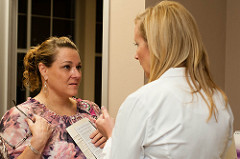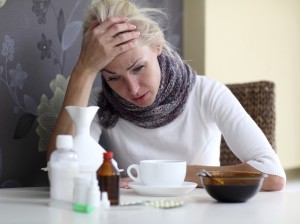Lose Weight > Common Sense To Lose Weight > Common Sense Article > Hazards In The Household: Microwaves, Air Fresheners And Water Bottles
Hazards In The Household: Microwaves, Air Fresheners And Water Bottles
Almost every house and most places of employment own and operate microwave ovens. A modern cooking appliance, microwaves use a form of radiation that interacts with food and cuts cooking time down to just a few minutes.
However, microwaving water in attempt to boil it can prove dangerous.
Heated rapidly in a microwave, water does not get a chance to begin bubbling. So, instead of seeing the normal breaks at the surface created but the bubble, the water surface remains still. Many people, up removing the container of heated liquid from the microwave, have experienced a backsplash of scorching water. This occurs because the jarring of the container when it is being removed for the oven breaks the surface of the water and releases the pressure that has not had a chance to bubble to the top.
It's best to place a wooden spoon or something with an irregular surface into the water, breaking the surface and allowing the pressure to escape.
Air Fresheners
You won't find many bathrooms without a can of air freshener. Making it easier for us to breath and helping other evade awkward situations, air fresheners envelope a room within just seconds of being sprayed.
Have you ever taken a moment to glance and the ingredients in the floral or summer rain scent? These aromatic mixtures actually contain phthalates, pronounced 'thalates,' and have been known hormonal abnormalities and reproductive problems. Pregnant women should also steer clear as they have been linked with birth defects.
Try a few natural ways of freshening up your home or office bathroom. Combine your favorite essential oil in a spray bottle or light beeswax or soy candles, both of which are natural and effective.
Plastic water bottles
Some of us buy spring water by the caseload, and, to ease our guilt over impacting the environment, save and refill the bottles. Washing and reusing the bottles may be ok for two or three times around, but have you thought about what might be growing inside the clear containers? Refilling and reusing bottles encourages the production of millions of bacteria. Especially when you consider the amount transferred to the bottle from the hands washing and refilling it, this practice turns out to be less than hygienic.
The material the bottles are made of can lead to ingestion of harmful chemicals. Full of potential human carcinogens, plastic can begin to leach into the liquid it is containing. Linked to breast cancer and an increased risk of miscarriages, the chemicals found in plastic are the last things you want to take in your body.
Aluminum bottles are the safest choice for reuse. Sold in most health food stores and website, aluminum is safe for you and where it ends up later. Plastic ends up just sitting in a landfill while aluminum can be recycled and made into something new. Save your money and leave the case of water at the supermarket.
Relying too much on modern and chemically based products can have unforeseen consequences on your quality of life. What is easier now may end up hurting you in the long run. Stick to natural or fundamental ways of doing things as much as possible by cooking with a stove or getting your water from the kitchen sink and you'll be eliminated many potential threats.
Related Articles
-
Lose Weight Fast For A Special Occasion
Copyright 2005 Adam WaxlerIf you have just a little weight to lose
-
Why is it Critical to Reduce Your Belly Fat?
Too much belly fat is an indicator of ob
-
Most Effective Fat Burning Regimen – Making Use Of The Balanced Approach
A lot of people always think about cutting corners in regards to
-
The Oil Depot Explosion That Rocked My Home And Brought Me Inner Peace
On Sunday morning, 11th December I got up early. I like sitting down
-
Stress And Your Mind
Effects of stress are not limited to our bodies. Perhaps our mind
-
Novel Ways to Eat Less
Eating unmindfully is a very sure way to get the excess weights on. Th
- DON'T MISS
- Obesity Paradox: Excess Body Fat Helps in Heart Failure Recovery
- Weight Loss Supplements: Are They Safe?
- For low back pain, early physical therapy shows modest pain relief benefit
- Look To A Lighter Future With Better Weight Loss Tips
- On-line Weight-loss Applications: How They Work
- Lannett Announces FDA Marketing Approval for Generic Phentermine
- Critically Imperative Tips Few Know About Boosting Your Metabolism
- The Story of Debbie Johnson's Weight Loss Miracle
- Science Reveals Yet Another Reason Not To Step On The Scale
- Take Hold Of Your Weight Problem With These Tips




